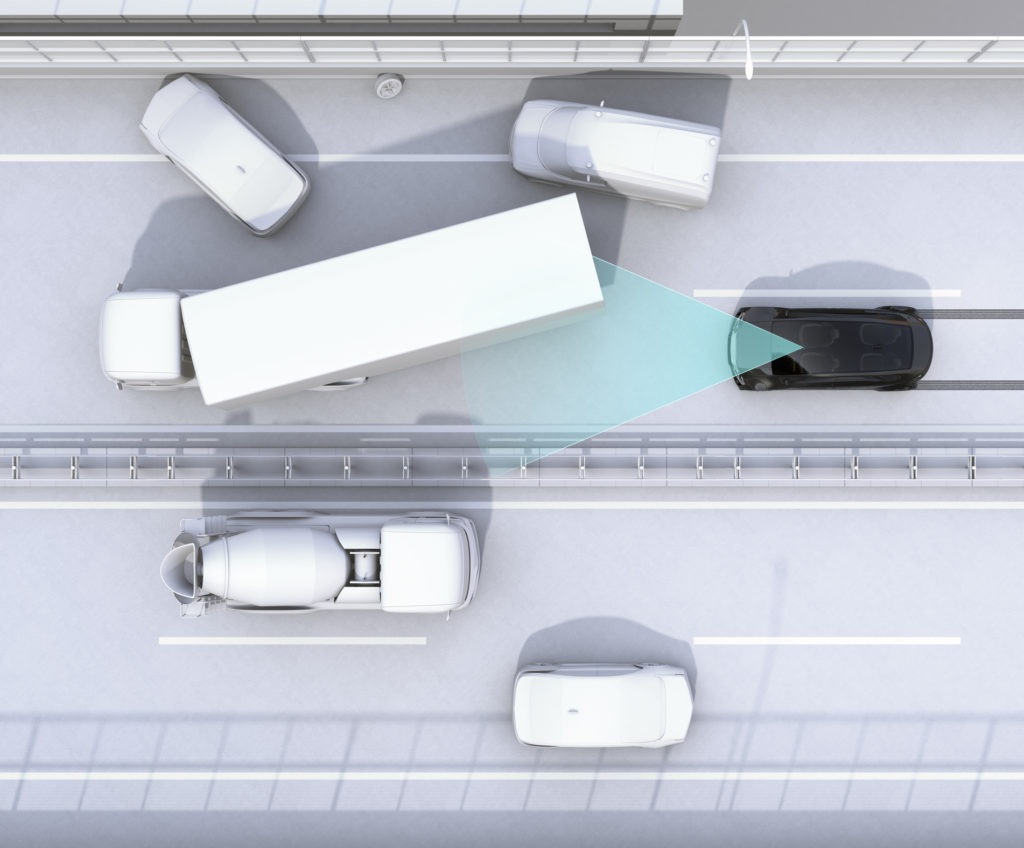Automatic braking needs to be adopted in mainstream automotive market
26 June 2017

26 June 2017
As anticipation grows for the new Nissan Leaf, due to reach the market in 2018, the manufacturer continues to tease audiences with potential specifications and technology in the market leading electric vehicle (EV).
The latest video released by the company highlights its Pro Pilot Assist semi-autonomous system, which it has been testing on closed tracks and in open environments as it aims for release in its production vehicles as part of its Intelligent Mobility Plan. The 2018 Leaf is expected to be able to perform the basics of braking, accelerating and steering on highways.
Nissan is expected to make automatic emergency braking (AEB) available as standard on one million vehicles in the US, in a push that is expected to filter through to EU markets. AEB uses radar technology to monitor a vehicle’s proximity to the one ahead and warns the driver through audio and visual displays to reduce speed, helping avoid or reduce the severity of potential collisions.
While manufacturers are pushing to improve their autonomous technology, AEB systems are being left behind despite their crash-prevention abilities. Toyota has also recently announced that it will make the technology available on all US vehicles as standard by the end of 2017. Yet the industry is under pressure from regulators and safety groups to adopt technology into a vehicle’s base cost.
A group of 20 vehicle manufacturers including Audi, BMW, Ford, Honda, Hyundai, and Jaguar Land Rover signed a pact in 2016 to offer AEB as standard in the US by 2022
General Motors offers automatic braking as optional equipment on about two-thirds of its models. The company did not say on Thursday how many vehicles have the technology as standard equipment. GM has not made public its plans to make the technology standard across its line-up.
Ford ′has a plan to standardise over time’ according to a statement. Currently, automatic braking systems are optional on several 2017 Ford and Lincoln models, and will be offered on certain 2018 models including the F-150 pickup truck.
Fiat Chrysler Automobiles offers automatic braking as optional equipment in nine model lines, using cameras and radar to detect hazards ahead. The company has said it will meet the 2022 target for making the systems standard.
Premium manufacturers do offer AEB in Europe, however safety groups are continuing to call for it to become standard equipment to save lives. In the UK, safety research organisation Thatcham, part of the ′Stop the Crash’ partnership that also includes Bosch UK, Continental Tyres UK and ZF TRW, is urging drivers to make a point of demanding such safety systems when buying a vehicle.
A survey of 2,000 consumers found that 83% think that the best safety systems should be fitted as standard and are not willing to pay for them as an optional extra. In fact, the uptake of safety features on cars is low at just 3.5%, with many dealerships not having vehicles in stock with them fitted.
Matthew Avery, director of research at Thatcham Research, comments: ″Our good safety intentions seem to evaporate on arriving at the dealership. There’s an urgent need to change the consumer mind-set to negotiate for the inclusion of additional safety options, if not standard, just as we would with other consumables or features. Especially when they can cost as little as £200. Safety should be a deal-breaker, not a nice to have.″